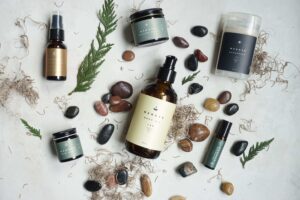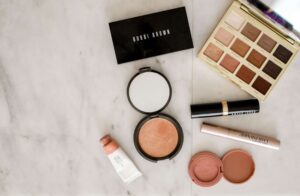Behind the Brand

In the ever-evolving world of beauty, the concept of clean beauty has gained considerable traction, with consumers increasingly prioritizing products that are not only effective but also environmentally conscious and free from harmful ingredients. This beauty blog embarks on a journey behind the scenes, delving into the stories of iconic clean beauty companies that have not only transformed the industry but have also left an indelible mark on the way we perceive and prioritize skincare and cosmetics.
1. Burt’s Bees: A Hive of Natural Goodness
The story of Burt’s Bees began in 1984 when artist Roxanne Quimby and beekeeper Burt Shavitz teamed up to create candles from excess beeswax. Their journey into natural skincare began when they realized the potential of beeswax in creating lip balm. Today, Burt’s Bees is synonymous with clean, natural beauty. Their commitment to sustainability extends beyond ingredients, encompassing eco-friendly packaging and a dedication to pollinator health.
Key Features:
- Emphasis on natural ingredients, especially beeswax and botanical extracts.
- Strong commitment to environmental sustainability, reflected in recyclable packaging.
- Social responsibility initiatives, including efforts to support pollinator health.
2. Dr. Hauschka: Harmonizing Nature and Science
Founded in 1967 by chemist Dr. Rudolf Hauschka, Dr. Hauschka is a pioneer in the realm of holistic skincare. The brand’s philosophy revolves around the idea that the skin can heal and regenerate itself with the right support. Dr. Hauschka products are formulated using biodynamic farming principles, combining natural ingredients to create products that promote skin health and radiance.
Key Features:
- Biodynamic farming principles for ingredient sourcing.
- Holistic approach to skincare that supports the skin’s natural functions.
- Emphasis on sustainable and responsible practices throughout the production process.
3. Tata Harper: Farm-to-Face Luxury
Tata Harper’s eponymous brand emerged from a quest to find effective, natural skincare solutions. Frustrated with the lack of transparency in the beauty industry, Tata Harper took matters into her own hands and founded her brand in 2010. The products are created on her Vermont farm, where ingredients are grown, harvested, and processed for a true farm-to-face experience. Tata Harper’s commitment to 100% natural and non-toxic formulations has garnered a devoted following.
Key Features:
- Farm-to-face production model for complete control over ingredients.
- 100% natural and non-toxic formulations, free from synthetic chemicals.
- Luxury skincare with a focus on efficacy and purity.
4. Ilia Beauty: Makeup with Integrity
Ilia Beauty, founded by Sasha Plavsic in 2011, is a brand that seamlessly marries clean ingredients with high-performance makeup. Recognizing the gap in the market for clean beauty products that didn’t compromise on efficacy or aesthetics, Ilia Beauty was born. The brand is committed to transparency in labeling, using ethically sourced ingredients, and minimizing its environmental footprint.
Key Features:
- High-performance makeup products with clean and safe ingredients.
- Commitment to transparency in ingredient sourcing and labeling.
- Sustainable packaging initiatives, including recyclable materials.
5. Herbivore Botanicals: Nature’s Elegance
Started as a kitchen experiment by a couple in Seattle, Herbivore Botanicals has grown into a renowned clean beauty brand celebrated for its simplicity and effectiveness. Co-founders Julia Wills and Alexander Kummerow prioritize natural ingredients, with a focus on delivering tangible results. The brand is committed to sustainable packaging and practices, emphasizing simplicity and transparency in their formulations.
Key Features:
- Minimalistic and elegant formulations with natural ingredients.
- Emphasis on simplicity and transparency in product development.
- Commitment to sustainability, reflected in eco-friendly packaging choices.
The stories behind these iconic clean beauty companies reflect a larger shift in consumer preferences toward products that prioritize both effectiveness and ethical considerations. From Burt’s Bees’ commitment to natural ingredients and environmental sustainability to Tata Harper’s farm-to-face luxury approach, each brand has a unique narrative that has contributed to the growth and popularity of clean beauty.

These companies not only offer an array of clean and effective products but also embody values such as transparency, sustainability, and social responsibility. As the clean beauty movement continues to gain momentum, these brands serve as beacons, inspiring both the industry and consumers to prioritize health, sustainability, and ethical practices. The stories behind these clean beauty giants invite us to think not just about the products we apply to our skin but also about the stories, values, and commitments we choose to embrace in our beauty routines.

